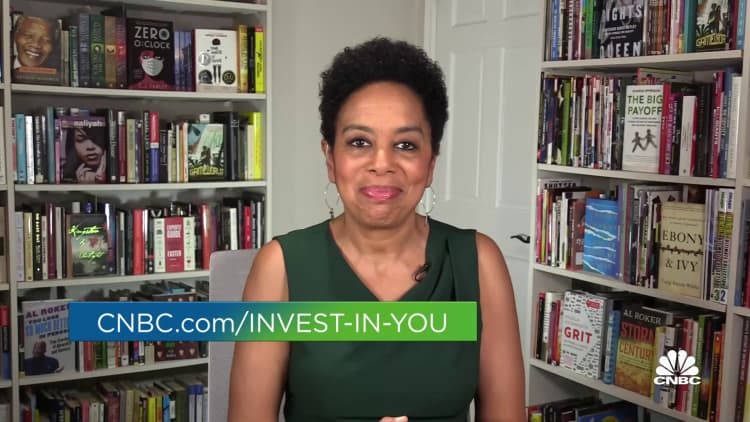This week's wild moves in the stock market may have you tempted to make changes to your portfolio.
Stocks dropped sharply on Thursday after Russia launched a military strike in Ukraine. President Joe Biden has condemned the attack, saying "the world holds Russia accountable."
Yet time and again experts will tell you to never let emotions drive your investing decisions.
That's because sudden declines and sharp rises in the stock market are a normal part of the investing journey, said financial advisor Mitch Goldberg, president of ClientFirst Strategy in Melville, N.Y.
"It's what you do before a plunge that counts, not the hasty reactions that come during and after, when you have no time to think," Goldberg said.
More from Invest in You:
A 'money disorder' may be behind your growing debt
The ultimate retirement planning guide for 2022
This worker took 3 months off with pay to go to Europe
While market experts said they didn't see evidence of panic in the market, it's normal for people to feel that way during heightened volatility, said financial psychologist Dr. Brad Klontz, associate professor of practice in financial psychology and behavioral finance at Creighton University Heider College of Business.
Those feelings have to do, in part, with the emotional brain being bigger and more powerful than the rational brain, he explained.
"Go ahead and panic," Klonz said, "[but] don't panic about the fact that you are panicking."

In other words when it comes to the stock market, acknowledge your emotions — but don't act on them. That goes for whether you want to sell during a big drop, or buy in during a surge.
Of course, refraining from acting may be easier said than done. Here are some techniques to calm your emotional brain so you can make more rational decisions.
Remember the past
When the stock market dives, remember that this isn't the first time it's happened.
"The stock market has overcome so many obstacles," said Goldberg, pointing to 9/11, the Great Recession and the market crash of 1987.
Put some time between your impulse to act and your behavior.Brad Klontz, financial psychologist
"What happened each time? The stock market recovered and claimed new highs."
Klontz, who is also a certified financial planner, agrees. In fact, he said younger investors who have only witnessed a bull market are more prone to become emotionally charged during times of prolonged volatility.
"They never had this experience," he said.
Take deep breaths
It may sound trite, but taking a few deep breaths really does work to address the onset of panic, said Klontz, a member of the CNBC Invest in You Financial Wellness Council.
Indeed, doing breathing exercises can decrease your blood pressure, heart rate and stress hormone levels, according to wellness expert Deepak Chopra.
Consult with an expert
What's more, consulting with a financial expert will not only help you evaluate the accuracy of your thinking, it also gives you something else you need: time.
If you can't afford a financial advisor, at least speak to somebody before you make an investment decision, Klontz said. That is, as long as they are not also panicking.
"The goal is to put some time between your impulse to act and your behavior," he explained. "If you can put some time in between those two things, you are more likely to calm down your emotional brain, engage your rational brain and make a good decision."
Consulting with an expert will also give you an opportunity to reevaluate your approach to investing and assess your risk level. Perhaps your portfolio isn't as diversified as it should be.
SIGN UP: Money 101 is an 8-week learning course to financial freedom, delivered weekly to your inbox. For the Spanish version Dinero 101, click here.
CHECK OUT: How a single mom in Atlanta makes $10,000/month on Outschool while only teaching a few hours a week with Acorns+CNBC
Disclosure: NBCUniversal and Comcast Ventures are investors in Acorns.






